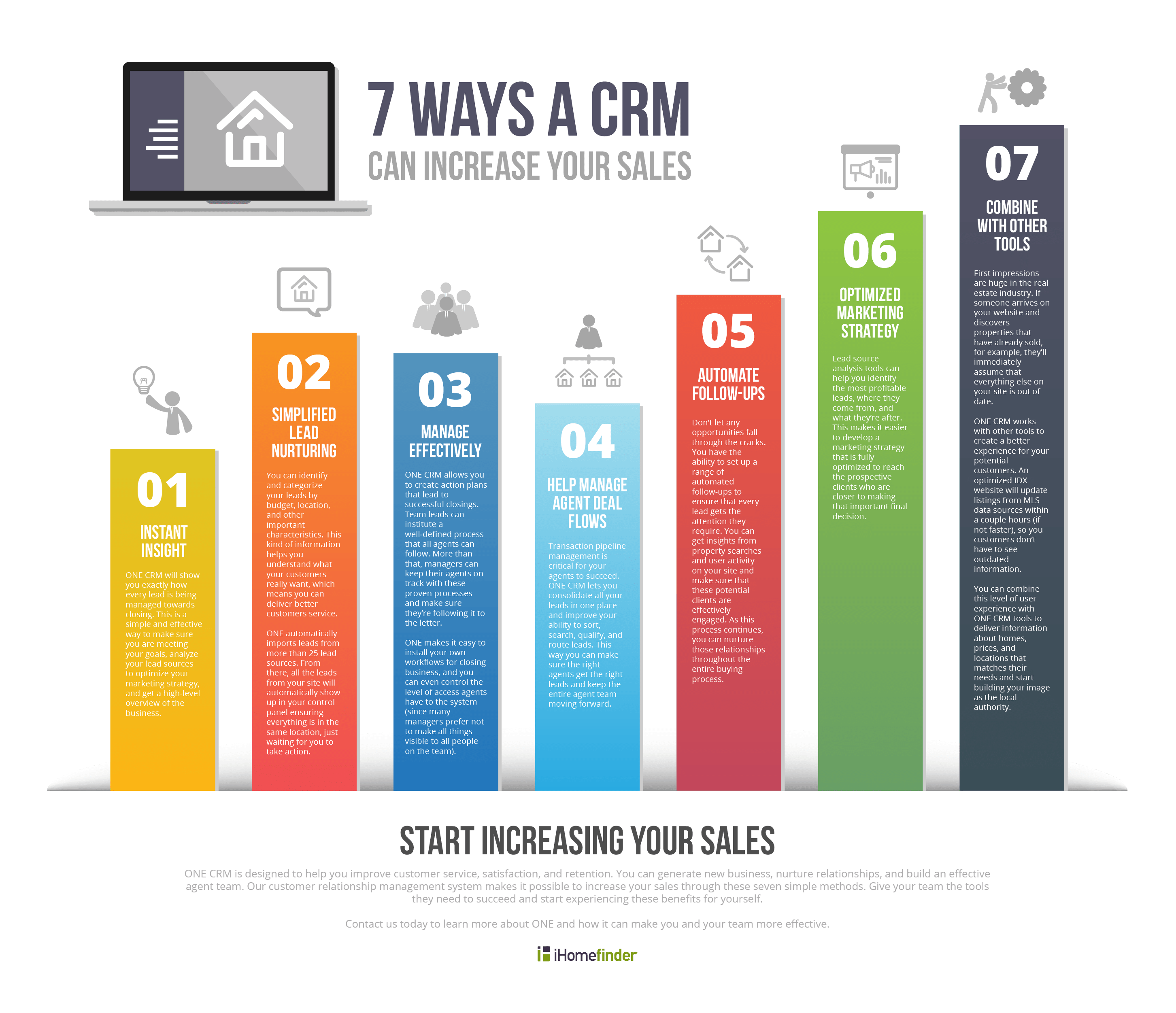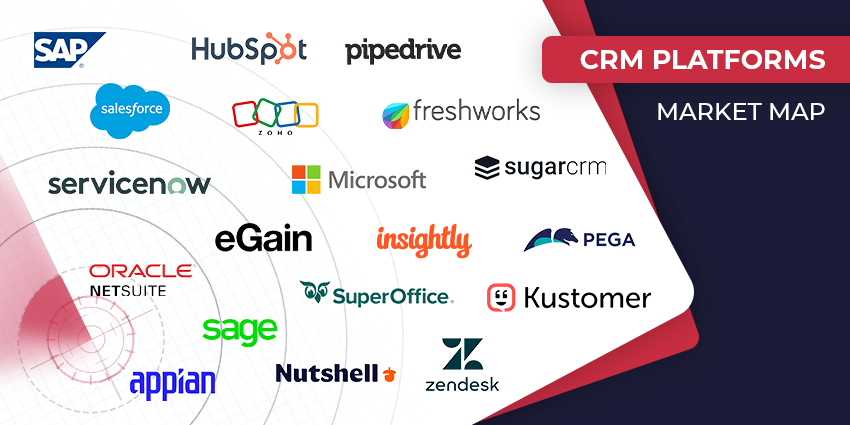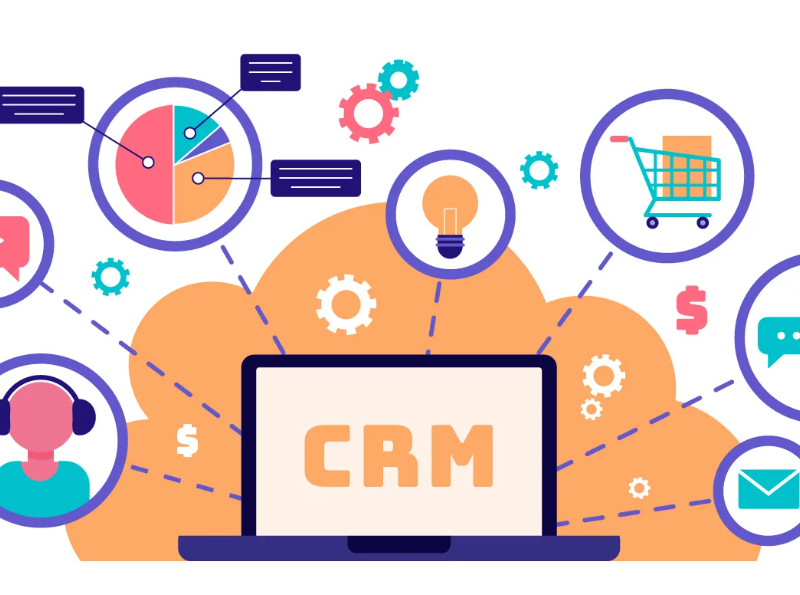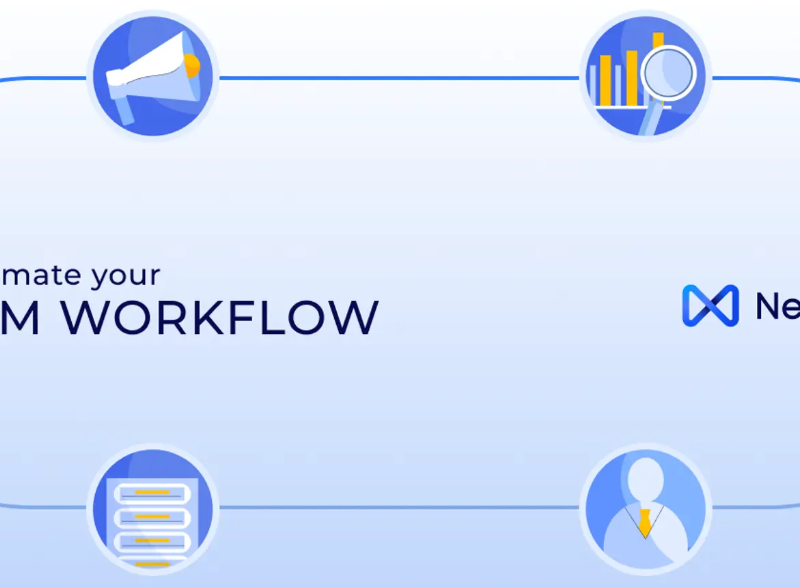In today’s competitive business landscape, effectively managing customer relationships is no longer a nicety but a necessity. With the right Customer Relationship Management (CRM) tools, businesses can streamline their operations, enhance customer engagement, and ultimately boost sales.
These tools offer valuable insights into customer behavior, automate routine tasks, and provide personalized experiences that keep customers coming back.
From lead generation and sales tracking to customer support and analytics, the right CRM solutions can transform how your business interacts with its most valuable asset—its customers. Discover the essential CRM tools that can propel your sales to new heights and ensure long-term customer loyalty.
Boost Sales with These Essential CRM Tools
Effective CRM (Customer Relationship Management) tools can significantly enhance your sales performance by providing valuable insights, streamlining processes, and strengthening customer relationships.
In this section, we will explore some of the essential CRM tools that can help you boost your sales and drive business growth.
Understanding the Importance of CRM
CRM systems are designed to help businesses manage their interactions with current and potential customers. By centralizing customer data, CRM tools enable you to gain a comprehensive view of your customers’ needs and preferences, which is crucial for tailoring your sales strategies.
Additionally, CRM tools can automate many routine tasks, freeing up valuable time for your sales team to focus on high-value activities.
Key Features to Look for in a CRM Tool
When selecting a CRM tool, consider the following key features: contact management, sales analytics, lead tracking, and automation capabilities. Contact management allows you to store and organize customer information efficiently.
Sales analytics provide insights into your sales performance, helping you identify trends and opportunities. Lead tracking ensures that you can follow up with potential customers effectively. Automation capabilities can streamline your sales processes, reducing administrative burdens and improving efficiency.
Popular CRM Tools for Sales Teams
Some of the most popular CRM tools for sales teams include Salesforce, HubSpot CRM, and Zoho CRM. Salesforce is a comprehensive CRM platform that offers a wide range of features, including advanced analytics and automation.
HubSpot CRM is known for its user-friendly interface and integrated marketing tools. Zoho CRM provides robust sales tracking and reporting features, making it an excellent choice for businesses of all sizes.
| CRM Tool | Key Features | Best For |
|---|---|---|
| Salesforce | Comprehensive, advanced analytics, automation | Large enterprises, complex sales processes |
| HubSpot CRM | User-friendly, integrated marketing tools | Small to medium businesses, inbound marketing |
| Zoho CRM | Robust sales tracking, reporting | Businesses of all sizes, customizable solutions |
How to increase sales with CRM?

To increase sales with Customer Relationship Management (CRM) systems, businesses can leverage a variety of strategies to enhance customer interactions, streamline processes, and drive revenue growth.
CRM tools provide valuable insights and functionalities that can be used to optimize sales performance. Here are some detailed methods:
Personalize Customer Interactions
Personalization is a key factor in improving sales. By using CRM data, sales teams can gain a deeper understanding of customer preferences, purchase history, and behavior patterns.
This information can be used to tailor marketing messages, product recommendations, and customer service interactions to meet individual needs.
- Segment your customer base based on demographics, purchase history, and engagement levels.
- Create personalized email campaigns that address each customer by name and highlight products or services relevant to their interests.
- Use CRM analytics to track customer responses and adjust your strategies in real-time to ensure maximum engagement and conversion rates.
Optimize Sales Processes
Efficient sales processes are essential for maintaining high productivity and achieving sales targets. CRM systems can automate routine tasks, provide real-time data, and offer actionable insights to help sales teams work more effectively.
- Automate lead capture and qualification to ensure that sales opportunities are not missed and that leads are promptly followed up.
- Implement a consistent sales pipeline to track the progress of each deal and identify bottlenecks or areas for improvement.
- Utilize CRM dashboards to monitor key performance indicators (KPIs) such as conversion rates, sales cycles, and revenue forecasts, allowing for data-driven decision-making.
Enhance Customer Retention
Customer retention is crucial for long-term sales growth. Retaining existing customers is generally more cost-effective than acquiring new ones, and satisfied customers are more likely to make repeat purchases and refer others to your business.
- Use CRM data to identify at-risk customers who may be considering switching to a competitor and proactively address their concerns or offer incentives to retain them.
- Implement loyalty programs that reward repeat customers with discounts, exclusive offers, or personalized experiences.
- Regularly solicit customer feedback through surveys and use the insights gained to improve product offerings, customer service, and overall customer satisfaction.
How does CRM help with sales?
A Customer Relationship Management (CRM) system is a powerful tool that significantly enhances sales performance by streamlining processes, providing valuable insights, and improving customer interactions. Here’s how CRM helps with sales:
1. Enhancing Customer Insights and Personalization
A CRM system collects and organizes customer data from various sources, including sales interactions, marketing campaigns, and customer service interactions.
This aggregated data provides sales teams with a comprehensive view of each customer, enabling them to understand their preferences, behavior, and needs. With this information, sales professionals can:
- Customize their approach to individual customers, increasing the likelihood of closing deals.
- Identify cross-selling and upselling opportunities based on customer history and preferences.
- Segment the customer base more effectively for targeted marketing campaigns.
2. Automating Sales Processes and Tasks
CRM systems automate routine sales tasks, such as lead management, follow-up emails, and data entry. This automation not only saves time but also reduces the likelihood of errors. Automating these processes allows sales teams to:
- Focus more on high-value activities, such as building relationships and closing deals.
- Maintain consistent communication with leads and customers through automated workflows.
- Track and manage the sales pipeline more efficiently, ensuring that no opportunities are overlooked.
3. Improving Collaboration and Team Performance
CRM systems facilitate better collaboration among sales teams and other departments by providing a centralized platform for sharing information and insights. This enhanced collaboration leads to:
- Improved communication and coordination, reducing silos and ensuring everyone is on the same page.
- Greater accountability and transparency, as all team members can see the progress of each sales opportunity.
- Access to real-time data and reports, enabling sales managers to make informed decisions and monitor performance metrics.
Which CRM is best for sales?

When it comes to selecting the best CRM (Customer Relationship Management) for sales, the choice largely depends on the specific needs and resources of your business.
However, some of the leading CRMs in the market consistently receive high praise for their comprehensive features, user-friendliness, and effectiveness in boosting sales performance. Here are some of the top contenders:
Factors to Consider When Choosing a CRM for Sales
When evaluating CRMs for your sales team, several factors should be considered to ensure the chosen solution aligns with your business goals and operational needs.
These factors include the CRM’s functionality, ease of use, integration capabilities, pricing, and customer support.
- Functionality: Assess whether the CRM offers essential features such as contact management, sales pipeline tracking, lead scoring, and analytics. Advanced features like AI-driven insights and automated workflows can also enhance sales productivity.
- Ease of Use: A user-friendly interface is crucial for adoption. The CRM should be intuitive and easy to navigate, with minimal training required for your sales team to become proficient.
- Integration Capabilities: The CRM should seamlessly integrate with other tools and platforms you use, such as marketing automation, email services, and customer service systems. This ensures a streamlined workflow and centralized data management.
Top CRM Solutions for Sales Teams
Several CRMs stand out for their robust features and suitability for sales teams. These solutions offer a range of benefits that can help you close deals more efficiently and effectively.
- Salesforce: Known for its comprehensive suite of tools and extensive customization options, Salesforce is a powerful CRM that caters to businesses of all sizes. It offers advanced analytics, AI-driven insights, and a vast app ecosystem, making it a top choice for many sales teams.
- HubSpot CRM: HubSpot provides a free CRM with essential features for sales, including contact management, email tracking, and deal tracking. The paid versions offer additional functionalities such as advanced automation, reporting, and integrations, making it a cost-effective solution for growing businesses.
- Pipedrive: Pipedrive is designed with a strong focus on sales pipeline management. It offers visual pipeline tracking, activity-based sales processes, and customizable workflows. Pipedrive is particularly effective for teams that need granular control over their sales processes.
Implementing a CRM for Sales Effectively
Once you have chosen a CRM, the next step is to implement it effectively to maximize its benefits. Here are some best practices to consider during the implementation process.
- Data Migration and Cleaning: Ensure that your existing data is accurately migrated to the new CRM. Clean and organize your data to maintain data integrity and improve the CRM’s performance.
- User Training and Adoption: Provide comprehensive training to your sales team to ensure they are comfortable using the CRM. Foster a culture of adoption by highlighting the CRM’s benefits and providing ongoing support.
- Customization and Optimization: Tailor the CRM to fit your specific sales processes and workflows. Regularly review and optimize the CRM’s settings and configurations to enhance its effectiveness and align with changing business needs.
Frequently Asked Questions
What are the Core Features of Essential CRM Tools for Boosting Sales?
Essential CRM tools typically include contact management, sales tracking, marketing automation, and customer service functionalities. These features help streamline customer interactions, track leads, and provide personalized experiences, ultimately leading to increased sales and customer satisfaction.
How Can CRM Tools Help in Identifying High-Value Leads?
CRM tools use data analytics and automation to identify high-value leads by tracking customer behavior, purchase history, and engagement levels. This information allows sales teams to focus their efforts on the most promising prospects, enhancing conversion rates and driving sales growth.
What Role Does Customer Segmentation Play in Boosting Sales with CRM Tools?
Customer segmentation helps tailor marketing and sales efforts by dividing customers into groups based on shared characteristics. This allows for more targeted and effective campaigns, improving customer engagement and increasing the likelihood of conversions and repeat business.
Can CRM Tools Integrate with Other Business Systems to Enhance Sales Effectiveness?
Yes, CRM tools can integrate with other business systems such as ERP, marketing automation, and e-commerce platforms. These integrations provide a holistic view of customer data, facilitate seamless workflows, and enhance overall sales effectiveness by ensuring all departments are aligned and informed.


